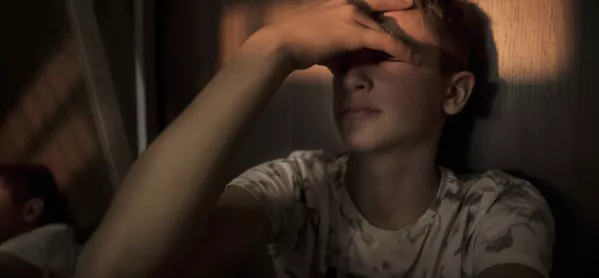Poorest far more likely to have Higher pass downgraded
Share
Poorest far more likely to have Higher pass downgraded
Based on teacher judgements this year, the Higher pass rate for Scotland’s most deprived pupils would have been 85.1 per cent - but after moderation it was lowered to 69.9 per cent, figures published today reveal.
The figures were released today by exam body, the Scottish Qualifications Authority (SQA), and highlighted by those who have been campaigning for the organisation to be more transparent about its moderation processes.
When it came to the least deprived pupils - those who live in the 20 per cent most affluent postcodes - teachers estimated that 91.5 per cent should pass, but ultimately following moderation 84.6 per cent did.
News: 25% of teacher estimates ‘adjusted’
Opinion: ‘Biggest impact on disadvantaged students’
Live blog: SQA results day 2020
Advice: How to make appeals
The Higher pass rate, therefore, fell for the most disadvantaged by 15.2 percentage points and for the least disadvantaged by 6.9 percentage points. That difference has prompted those who have been campaigning for a system that is fair for all this year to conclude the poorest young people were “over twice as likely to have their Higher downgraded from a pass to a fail than their most affluent peers”.
However, at her coronavirus briefing today, the first minister Nicola Sturgeon pointed out that an 85.1 per cent Higher pass rate for the most deprived pupils would have been an increase of 20 percentage points on the previous year - a leap that she suggested would put at risk the credibility of the qualifications.
Barry Black, an education researcher at the University of Glasgow, said: “Any system would have needed elements of moderation, but the full reliance on historical attainment data has caused these issues - as [the SQA] were warned from the outset. They have tried to preserve an unequal system of assessment, and succeeded.”
He added that more questions needed to be asked about why the SQA model had said these pupils should fail when their teachers thought they should pass. This could not just be put down to optimistic teachers, he said, referring to comments made by SQA chief executive Fiona Robertson when attempting to explain why teacher estimates were higher than historical attainment data.
Here it is.
- Barry Black (@BarryBlackNE) August 4, 2020
Poorest pupils Higher pass rate reduced by 15.2% between teacher estimate and statistical moderation.
Richest pupils rate reduced by just 6.9%. pic.twitter.com/aVHFf602Rq
At her daily briefing today Ms Sturgeon stressed that three-quarters of teacher estimates had not been moderated and that the pass rates were up for National 5, Higher and Advanced Higher.
However, she added that without moderation the results would have lacked credibility and there would have been an “almighty row”, given the pass rate for the poorest pupils at Higher in 2019 was 20 percentage points lower and sat at 65.3 per cent.
She said: “We are trying to have a credible system of results that young people can take confidence in and I believe we have that, and the appeals system is there to make sure that individual concerns can be addressed.”
The Scottish Greens education spokesman Ross Greer meanwhile has hit out at the SQA for the “disturbing and grossly unequal” results of its grading system, calling for the exams authority to appear before parliament immediately to explain what has happened.
Mr Greer - who has also been vocal about the lack of transparency over this year’s grading process - said he had been contacted by schools serving disadvantaged areas where more than 90 per cent of their Higher and Advanced Higher grades had been changed.
He said: “How can the SQA say the system is based on teacher judgement when in some schools they have ignored almost every professional judgement that teachers have made?
“Pupils are having their futures disadvantaged and it seems to be for no other reason than they school they go to. This is frankly disturbing and grossly unequal. The Scottish Greens warned that this would happen but the SQA and Scottish government refused to listen.”
Some have suggested that, as a one-off, exams could be set this autumn to allow students to pull their grades up, as is happening in England, but that was ruled out by John Swinney today - see Tes Scotland news editor Henry Hepburn asking him about this in the clip below.




